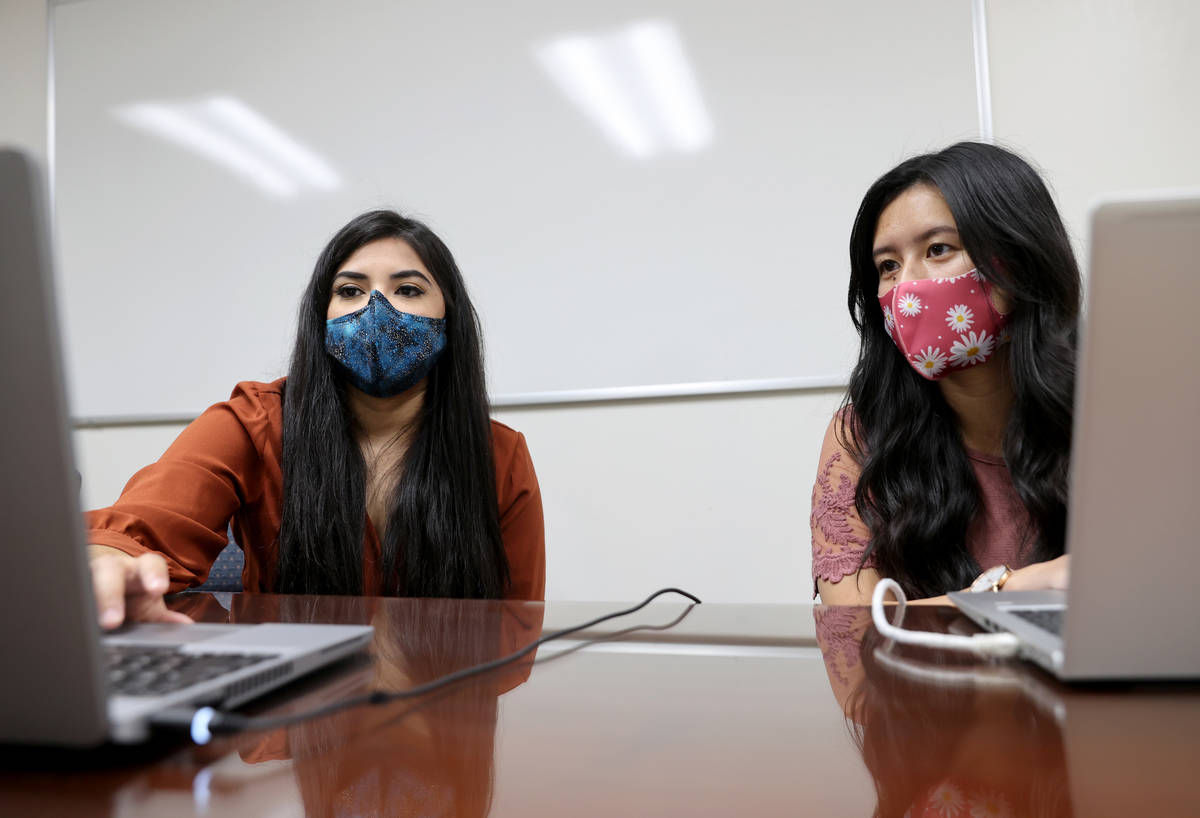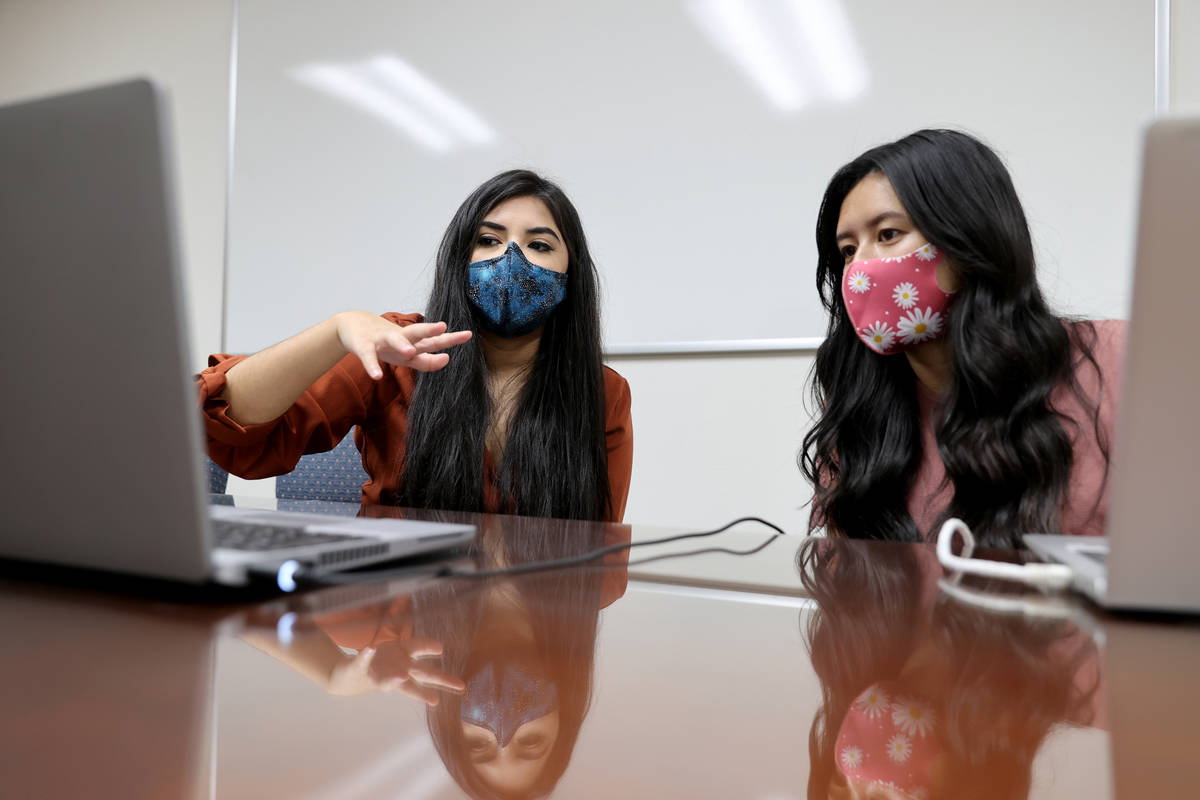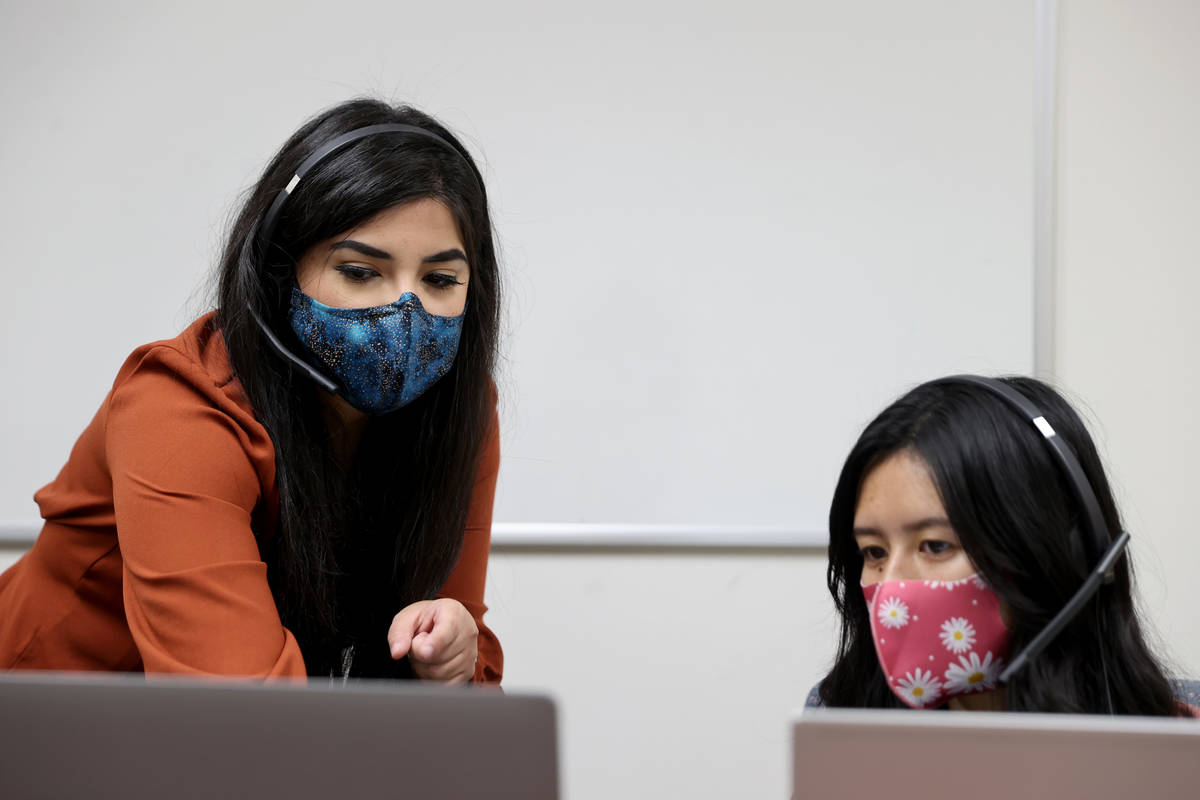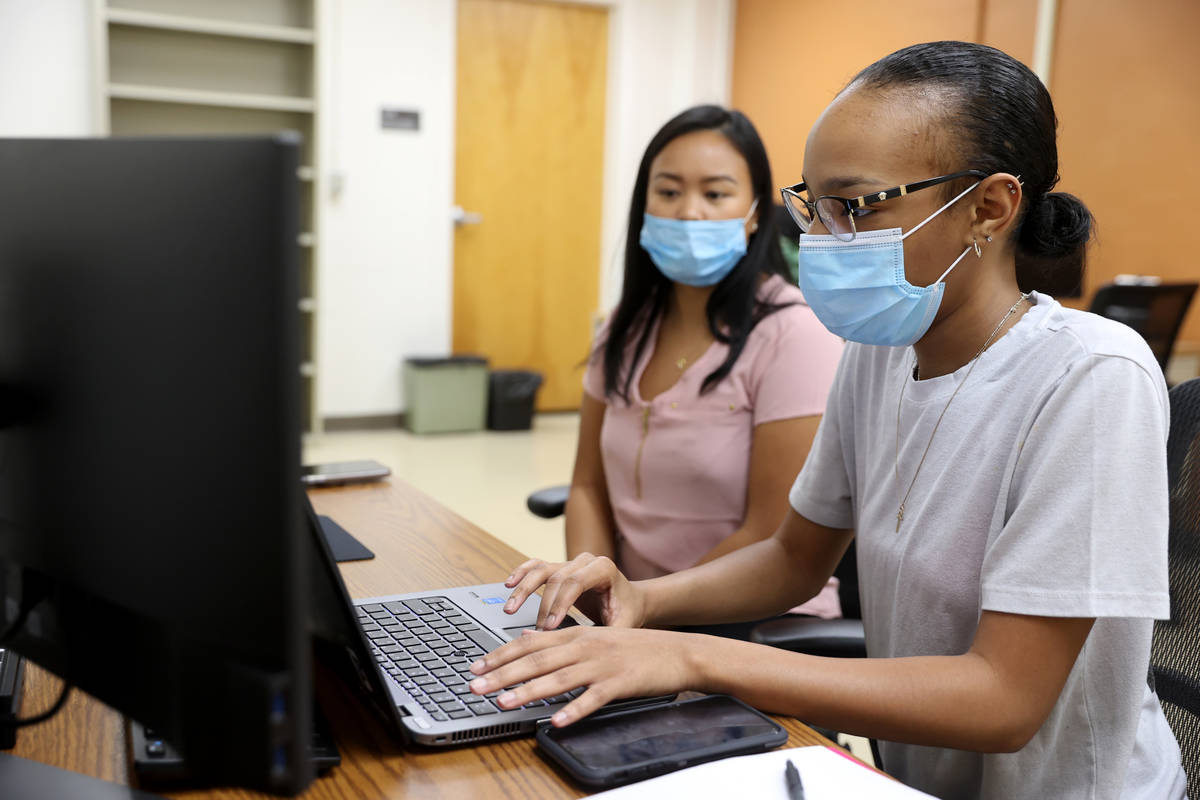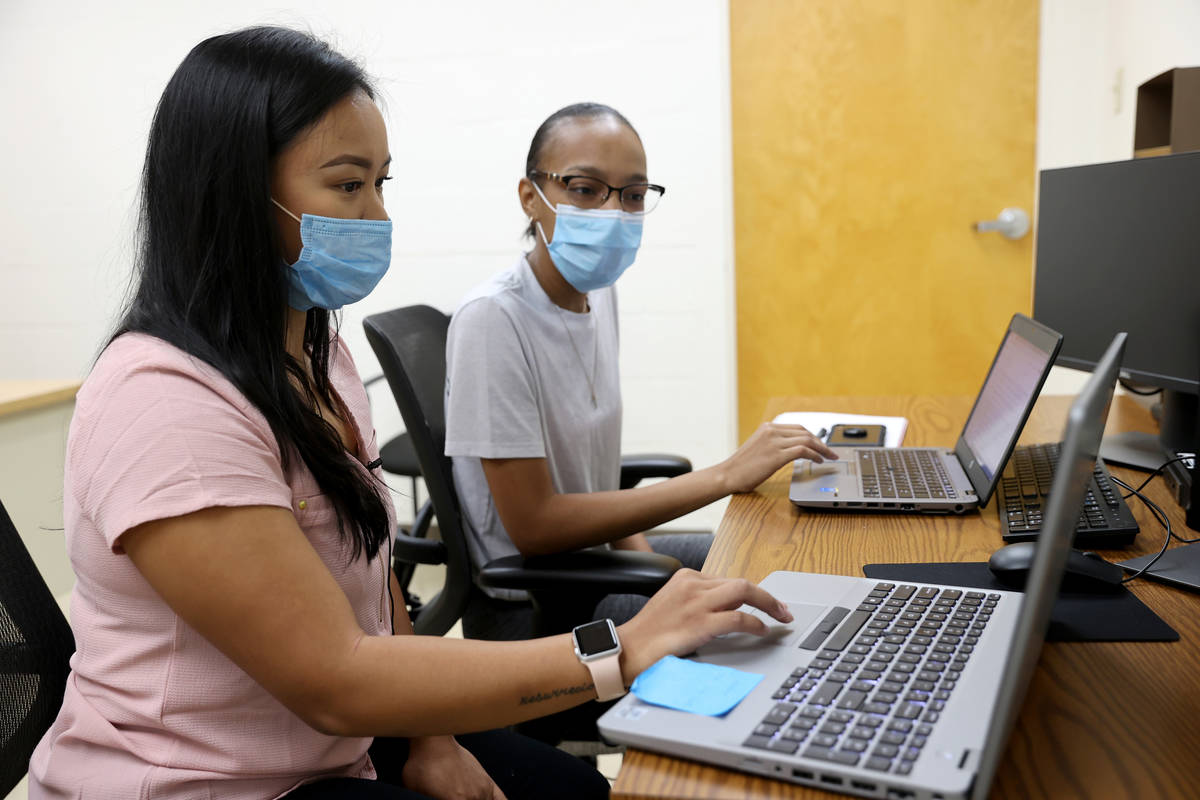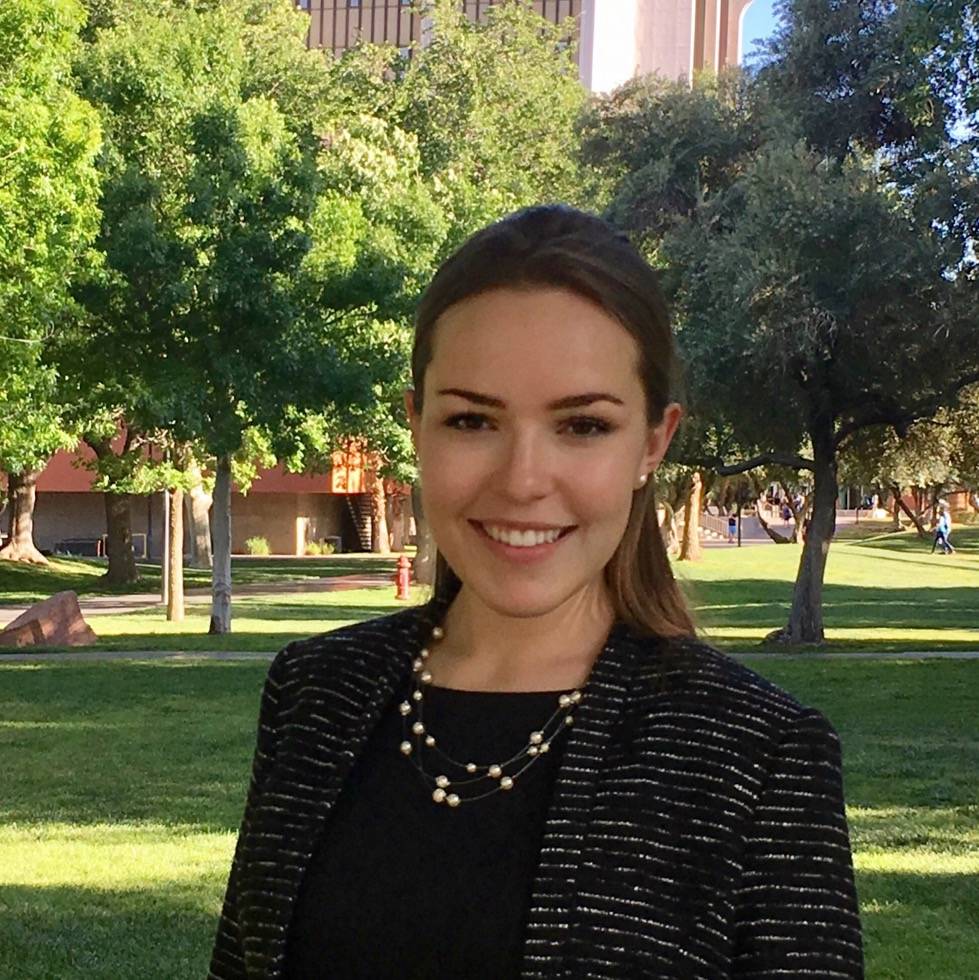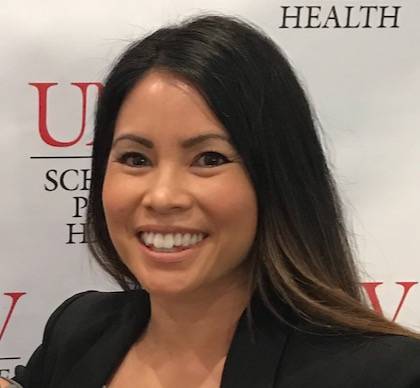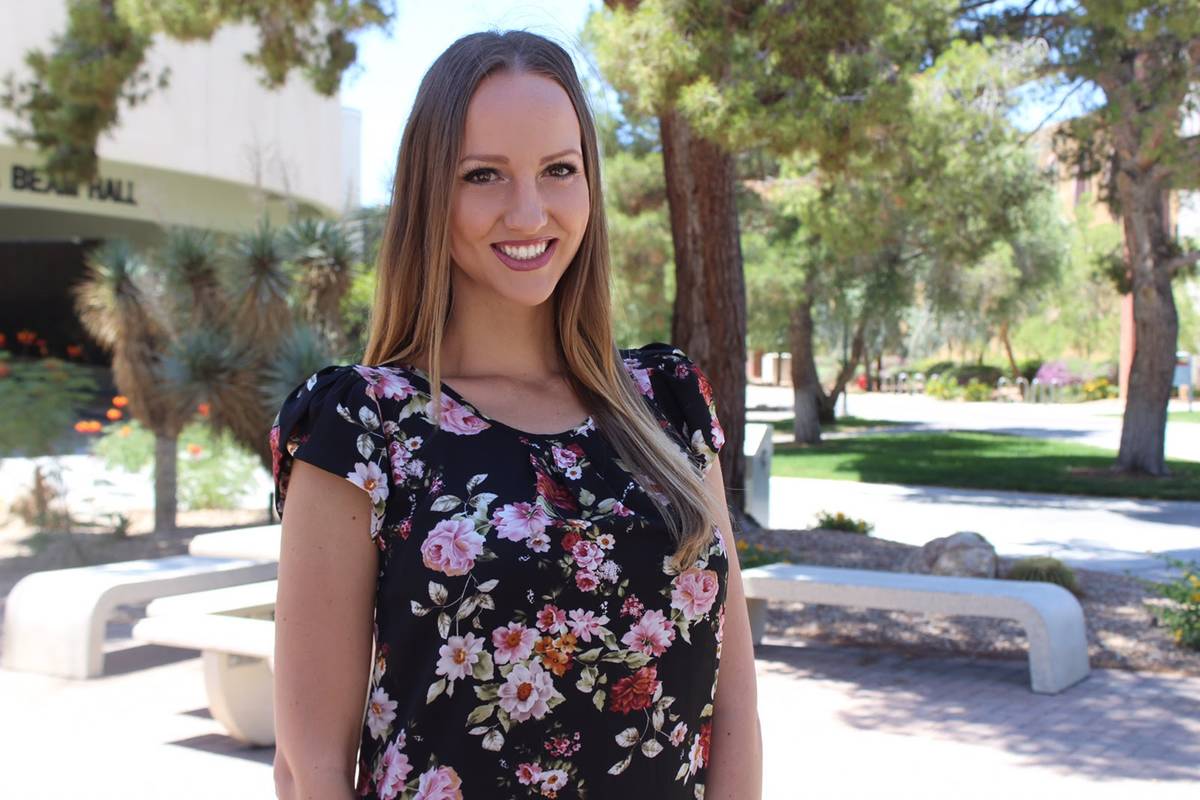Meet 3 UNLV grad students leading a COVID-19 contact tracing team
UNLV doctoral student Casey Barber was keeping an eye on the COVID-19 situation even before the first case was reported in the United States.
And starting in March — after confirmed cases cropped up in Southern Nevada — the 25-year-old Las Vegas native was among seven UNLV public health graduate students who volunteered to help the Southern Nevada Health District with contact tracing.
“Contact tracing is the bread of butter of epidemiology and biostatistics,” Barber told the Review-Journal. “It’s linking cases together and understanding how disease is transmitted through a community.”
In late September, the UNLV School of Public Health announced it received a $3.4 million state grant to expand the contact tracing program, which is a partnership with the health district. Once it’s fully staffed, more than 200 UNLV students — hailing from multiple academic areas — will be employed.
UNLV epidemiologist Brian Labus, who also serves on Gov. Steve Sisolak’s COVID-19 medical advisory team, is the principal investigator for the state grant.
Southern Nevada Health District spokeswoman Stephanie Bethel said the district provided training for the initial group of UNLV students who were helping with contact tracing and now the university is providing training as it continues to hire new staff.
“We believe contact tracing is a key public health tool to end the COVID-19 pandemic and the assistance of UNLV’s students has been a resource in our efforts to identify people who have been potentially exposed to the virus and provide them with important information about their health,” Bethel said. “This partnership is providing students with real-world opportunity to see public health in action.”
‘It is hard work’
Barber, who is pursuing a doctoral degree from UNLV’s School of Public Health focusing on epidemiology and biostatistics, is now one of three co-leaders for the contact tracing team.
“This has been one of the first experiences in applied public health and actually getting to do something that I know is making a difference in our community,” she said.
Barber — who started her doctoral degree program in fall 2019 and completed her bachelor’s degree at UNLV in 2017 — said she’s glad to help and knows it’s a challenging and unprecedented time for so many people.
So far, about 87 UNLV students are working as contact tracers — a paid position that’s approximately 20 hours a week — with 19 languages represented among them. Plus, there’s a small management team to supervise, answer questions, provide training and assist with more challenging cases.
Four of the original seven contact tracing volunteers are still on the team.
“It is hard work and there’s a lot of training that goes into it,” Barber said.
While seeking UNLV students to join the contact tracing team, leaders started recruiting initially within the School of Public Health, then expanded to other health science divisions and, finally, to other colleges at UNLV. More than 1,100 students have applied for the job positions.
‘Fascinated with outbreaks’
Jacklynn De Leon, 28, who’s originally from San Diego, is also a doctoral student in UNLV’s School of Public Health studying epidemiology and biostatistics. She’s also a contact tracing team leader and was among the original seven volunteers.
“I’m fascinated with outbreaks,” said De Leon, who earned a master’s degree in public health from UNLV in 2018. “That’s actually what I want to go into when I graduate. I didn’t expect an actual pandemic to happen during my doctoral program.”
De Leon said it’s a learning experience, both in terms of how people react to a pandemic — such as panicked buying at grocery stores — to the public health aspect, including “what epidemiologists do in the background.” She said she also has an interest in global health and emerging infectious diseases.
Participating in the contact tracing team is firsthand applied experience, De Leon said, adding that it’s hard work and is essential to outbreak investigation. She said she’s also learning how to manage a large team of workers.
Another team leader, Dr. Kristina Mihajlovski, was also one of the original seven contact tracing volunteers. The 30-year-old international student — a medical doctor who’s originally from Serbia — was a national public health officer in her home country. Now, she’s pursuing a master’s degree in public health at UNLV.
“I was always passionate about clinical and public health work, especially infectious disease control and prevention,” she said.
Mihajlovski started working on her master’s degree in January 2019 and anticipates her master’s thesis will probably be related to the COVID-19 pandemic.
Through her experience on the UNLV contact tracing team, Mihajlovski said she has learned more about outbreak control, infectious disease prevention and how contact tracing works.
Sometimes, people think of infectious diseases as being something of the old world, she said, but COVID-19 is having a negative global impact in the modern day.
“This definitely showed us that infectious diseases are emerging and we have to be prepared.”



